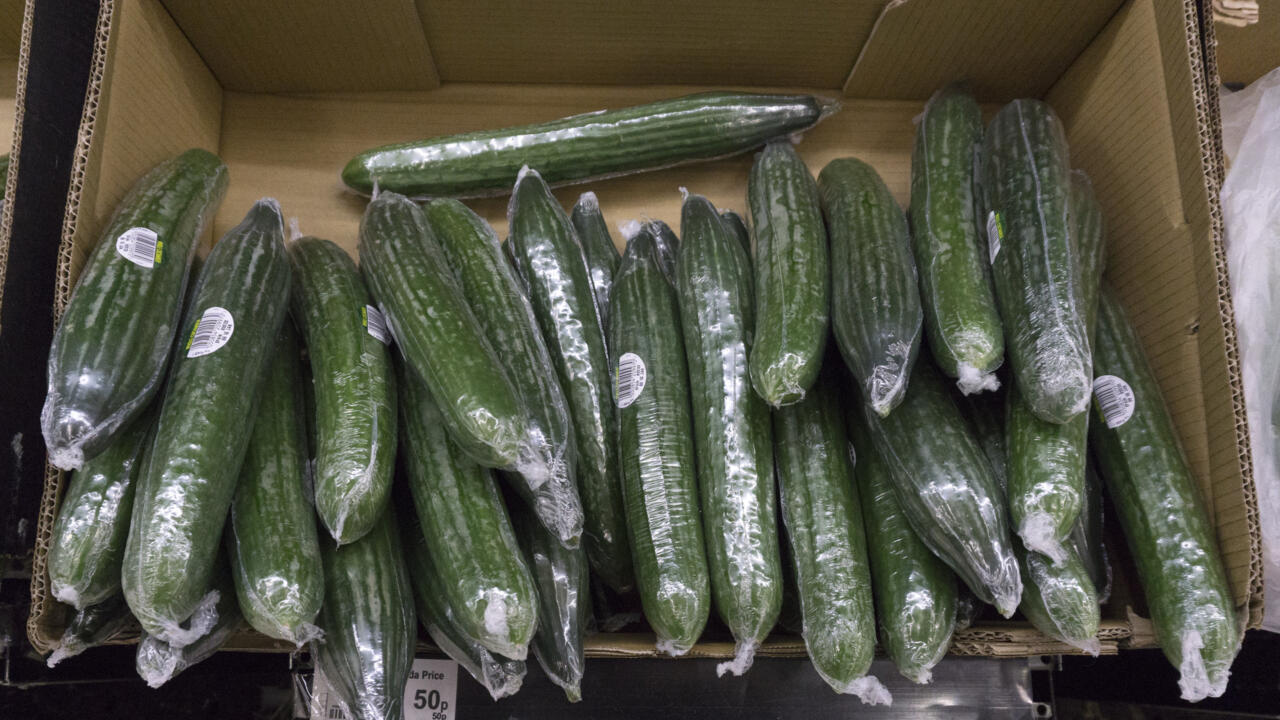The government "took note" of this decision on Friday evening and promised "a new decree as soon as possible to maintain the ban on plastic packaging of everyday fruits and vegetables that can be sold in bulk without fragility issues", according to a press release. .
Since January 1, 2022, around thirty unprocessed fresh fruits and vegetables, such as courgettes, peppers, cucumbers, apples, pears or oranges, could no longer be sold in plastic packaging, except when they were packaged in batches of more than 1.5kg.
But for ripe fruits, sprouted seeds, and red fruits, i.e. the most fragile, various plastic packaging could continue until 2026 depending on the type, according to the implementing decree published in October 2021.
And it is this progressive calendar which has been deemed illegal by the Council of State, seized in particular by the plastics manufacturers.
The highest French administrative body considered that the State had exceeded the mandate which had been set for it within the framework of the law relating to the fight against waste and the circular economy.
Indeed, the latter, promulgated in February 2020, had "entrusted the government with the task of listing the only fruits and vegetables presenting a risk of deterioration if they were sold in bulk, in order to exempt them from the ban on plastic packaging. definitively", explains the Council of State in a press release.
However, in its decree, the government not only "included in its list fruits and vegetables not necessarily presenting a risk of deterioration", but also "fixed, for each of these fruits and vegetables, the period during which they could continue to be sold in plastic packaging after January 1, 2022", indicates the Council of State.
Clearly: if there are exemptions, these must be final or have no reason to be, considers the Council of State.
a "firmer" text in preparation
The government must therefore rewrite its text by redefining a new list of fruits and vegetables concerned (or exempted) by this ban.
And this worries the environmental defense associations who fear a new "too lax decree" and that the list of exemptions "is so long that it removes any real scope from the prohibition law".
Less than a year after its entry into force, plastic packaging around certain fruits and vegetables could be back on the shelves © MYCHELE DANIAU / AFP/Archives
This decision to cancel the decree "makes us very worried. It is really a setback in what was nevertheless a concrete step forward in the fight against plastic pollution", estimated Moira Tourneur, manager at Zero Waste France, with l AFP.
“This risk of going backwards represents a waste of time in the face of the ecological emergency and risks offering a long life to plastic packaging”, estimates the association.
The new decree "will also provide exemptions for the most fragile products as specified by law", the government said on Friday evening.
Before this ban came into force, 37% of fruit and vegetables in France were sold in packaging.
The ban was to "avoid more than a billion unnecessary plastic packaging each year", the government said last year.
President Emmanuel Macron had highlighted in September 2021 that France would be "the first country to no longer have plastic around (its) fruits and vegetables", promising a "real revolution".
On the side of the French interprofession of fresh fruits and vegetables Interfel, we "are not delighted with this decision as such", even if it is "coherent and logical", estimated its president Laurent Grandin with AFP .
"For the sector, this decision makes it possible to consider prior consultation, in order to find, with the government, the optimal framework for the application of this law (...) harmonized at European level and making it possible to reconcile economic constraints and technical solutions. “, adds Interfel in a press release, while reaffirming “its desire to achieve the objective of a reasonable exit from plastic”.
The sector estimates that almost 70% of products are already sold in bulk, but does not want to do without plastic completely.
© 2022 AFP

